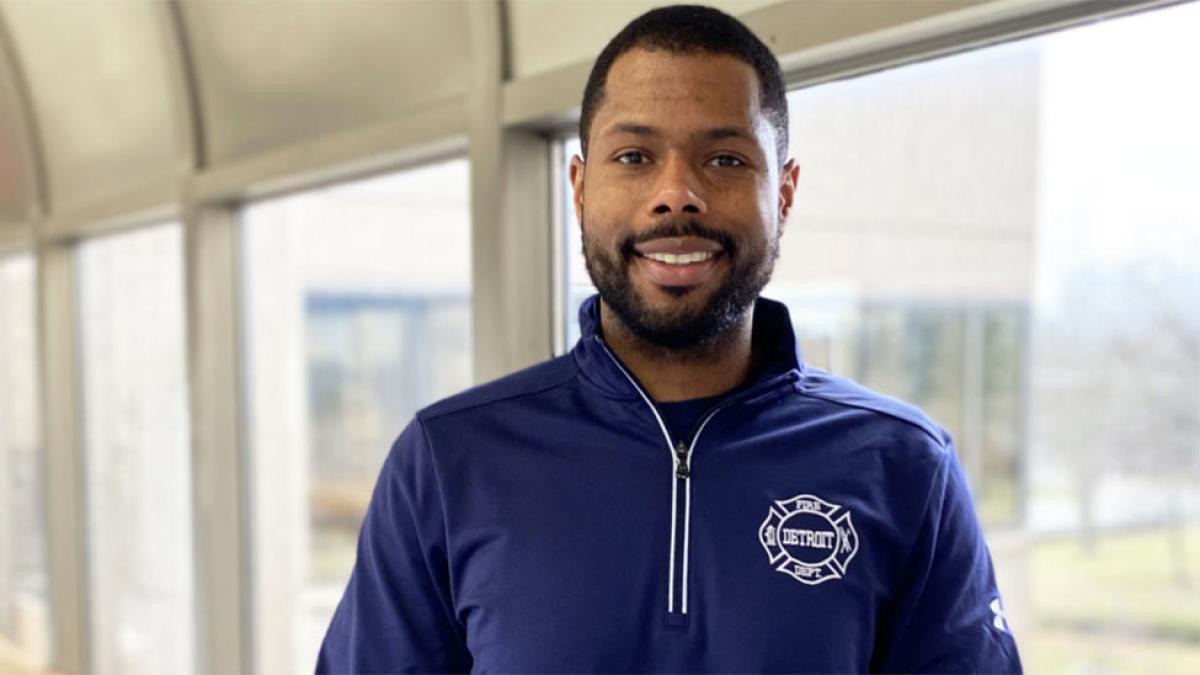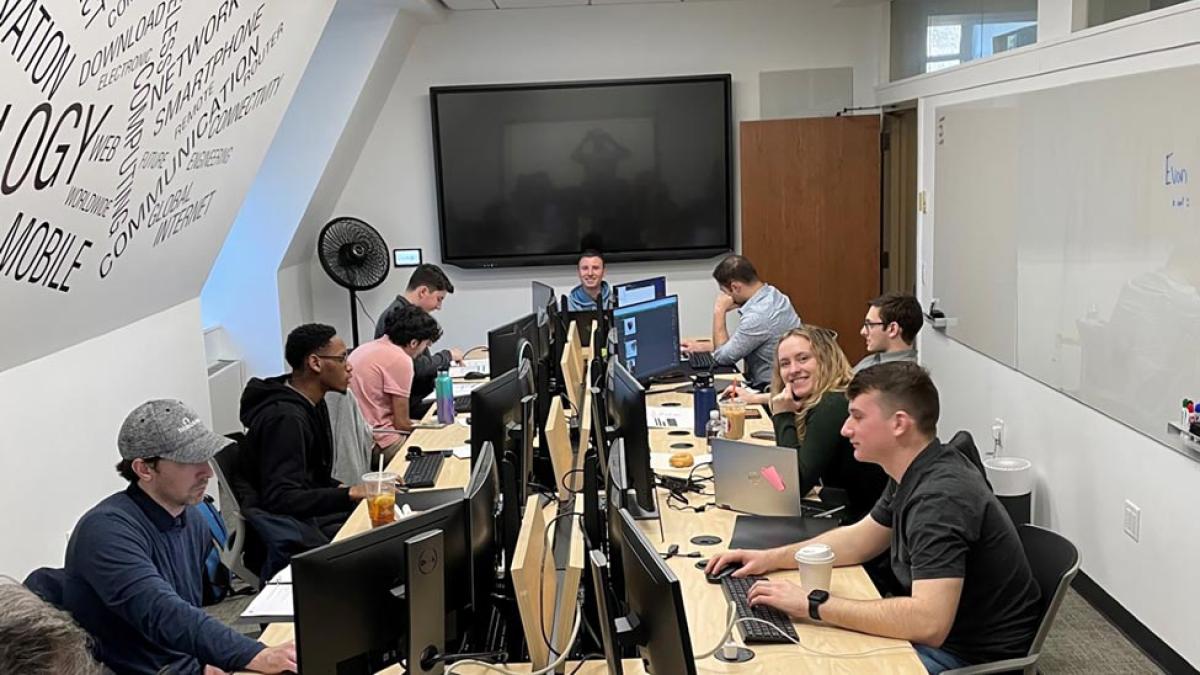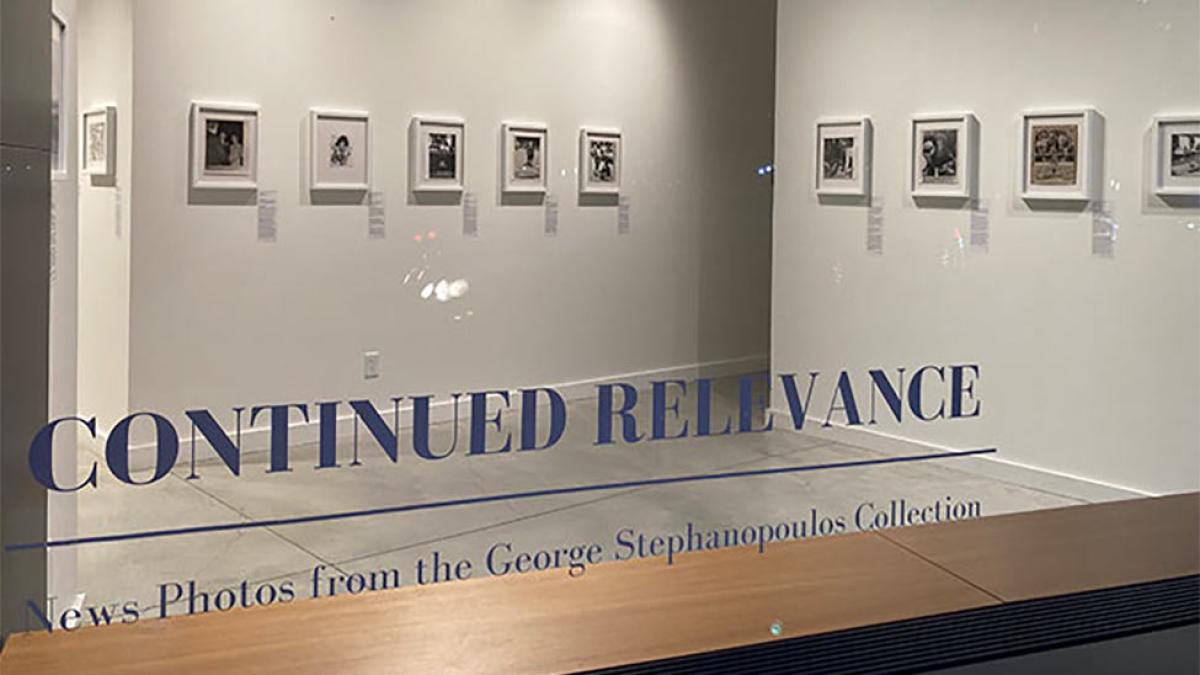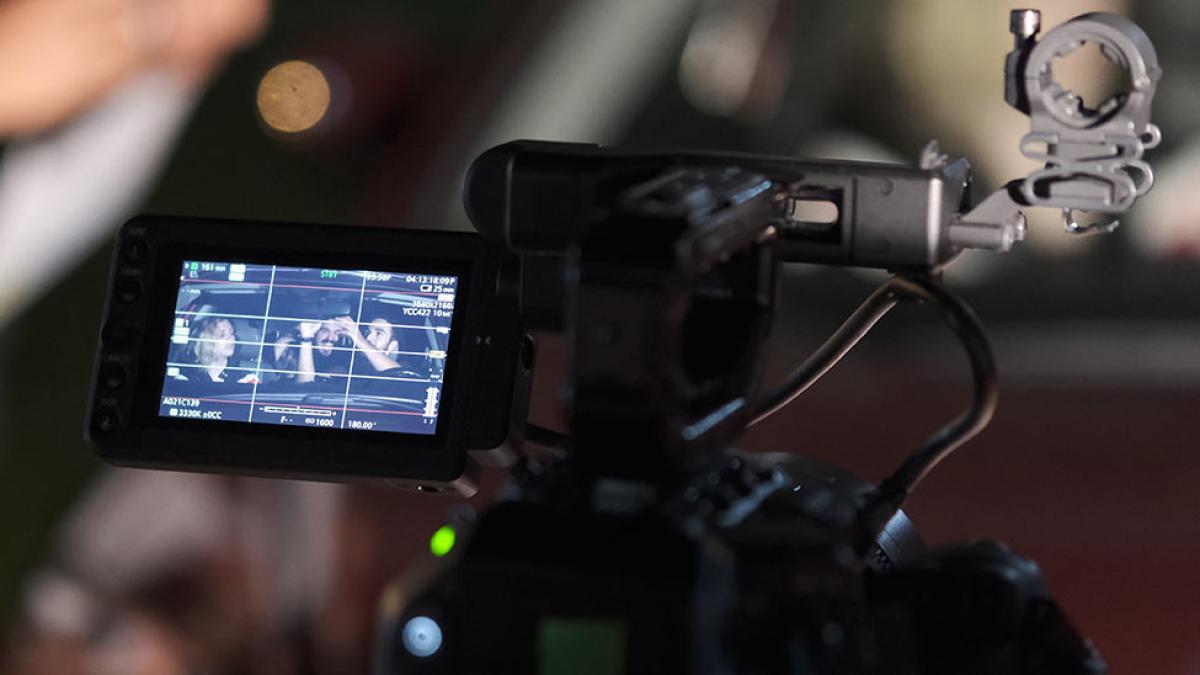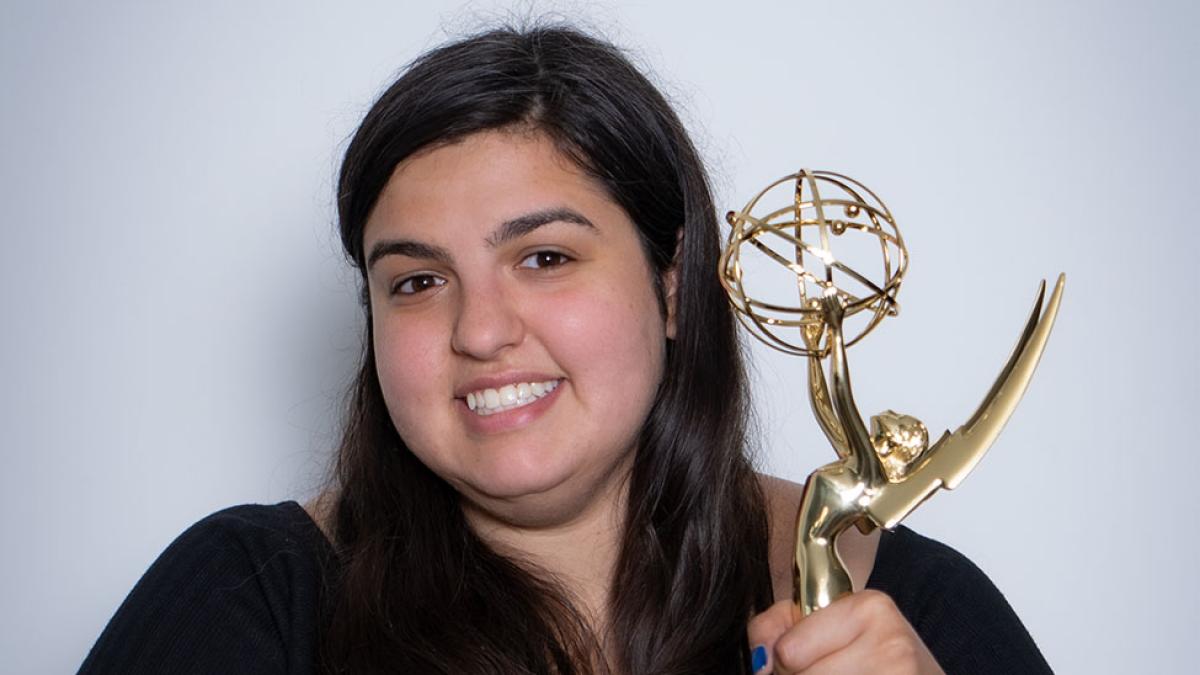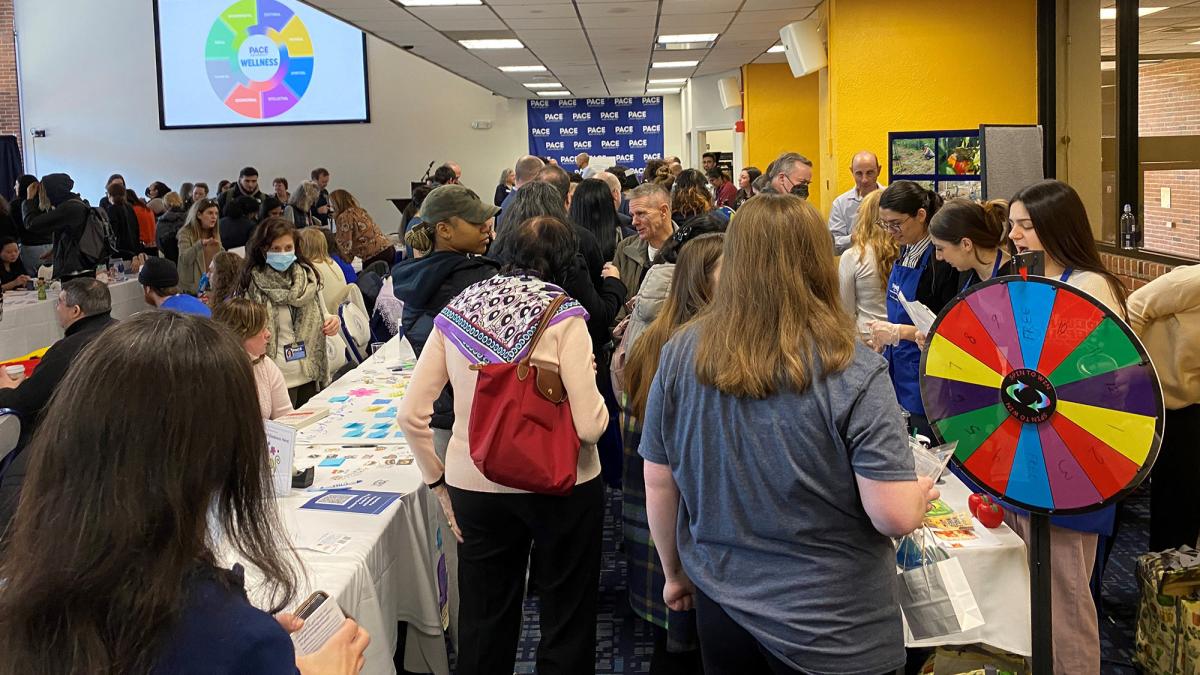
What the Thinx Class Action Settlement Means for All of Us
“According to this Thinx settlement, Thinx said they'd help ensure PFAS is not ‘intentionally added,’ which is different from saying a product doesn't have PFAS,” Bridget Crawford, professor of law at Pace University and author of Menstruation Matters: Challenging the Law’s Silence on Periods, told me. “This settlement and current laws don’t require menstrual product manufacturers to reveal all chemicals in their products or to affirmatively demonstrate product safety, such as thorough product testing for toxic chemicals."
Governor Hochul: To Be Tough on Crime, Get Rid of Bad Prosecutors
Haub Law Professor Bennett Gershman pens an op-ed in New York Law Journal about the changes needed in the Prosecutor Conduct Commission.
Cybersecurity Frameworks and the Four Pillars of Cybersecurity
John Bandler is an adjunct professor at Elisabeth Haub School of Law at Pace University who teaches about law as it intersects with cybercrime:
What is a cybersecurity framework?
A cybersecurity framework is basically voluntary guidance for organizations, to help them manage their cybersecurity program and measures. It is a “best practice”.
There are many cybersecurity frameworks, from different organizations, with different layout, focus, and language. The organizations developing them may have different business models.
Consul General of Mexico in New York Jorge Islas López Discusses Human Rights During 2023 Blaine Sloan Lecture on International Law
Jorge Islas López, Consul General of Mexico in New York, delivered the 2023 Blaine Sloan Lecture on International Law on Wednesday, February 1, speaking on "The Consular Duty and the Protection of Human Rights in New York.” The Blaine Sloan Lecture on International Law honors F. Blaine Sloan for developing the international law studies program at Pace. Consul General Islas López is also Giovanni Sartori Constitutional Law Professor, National Autonomous University of Mexico.
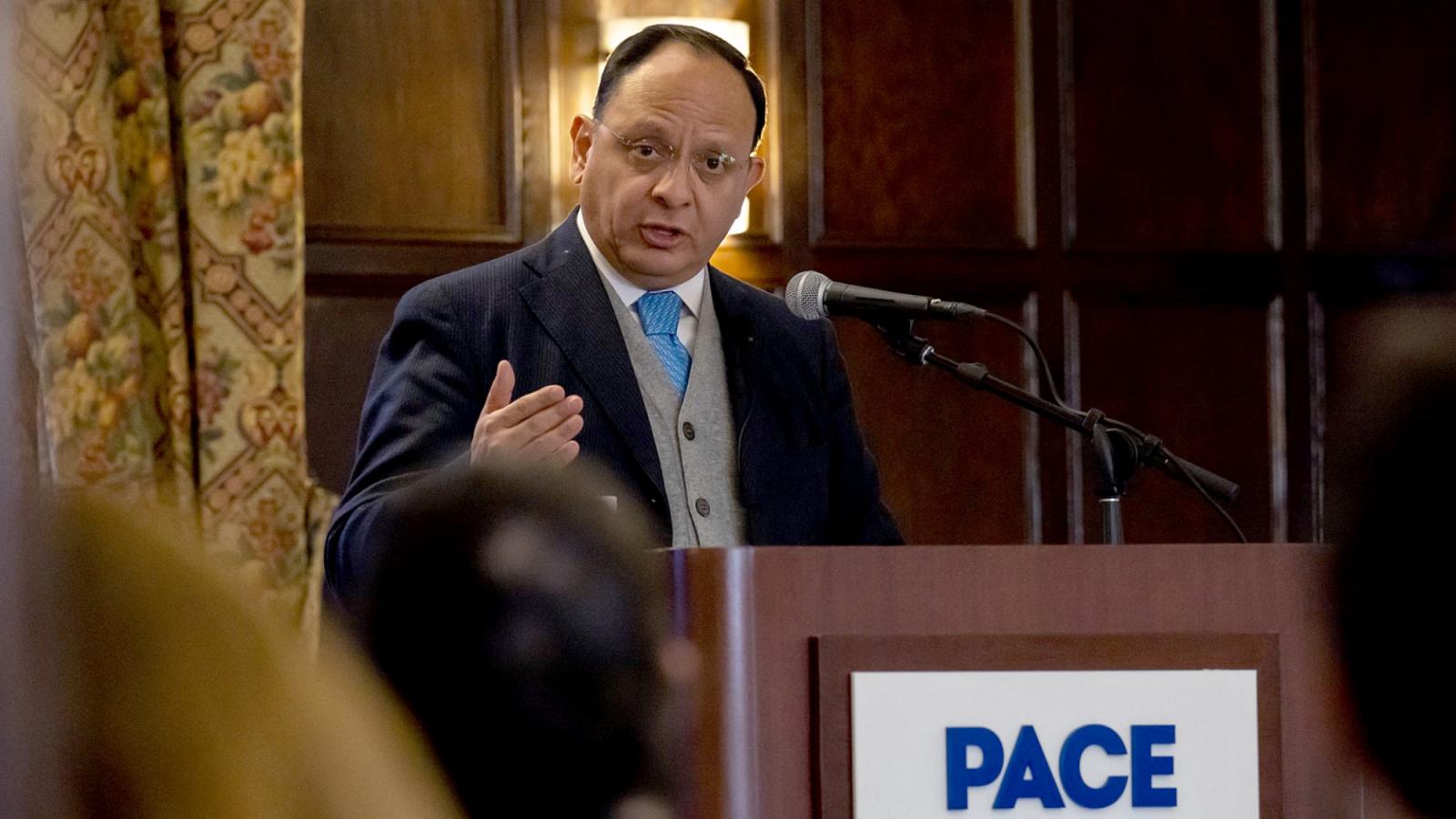
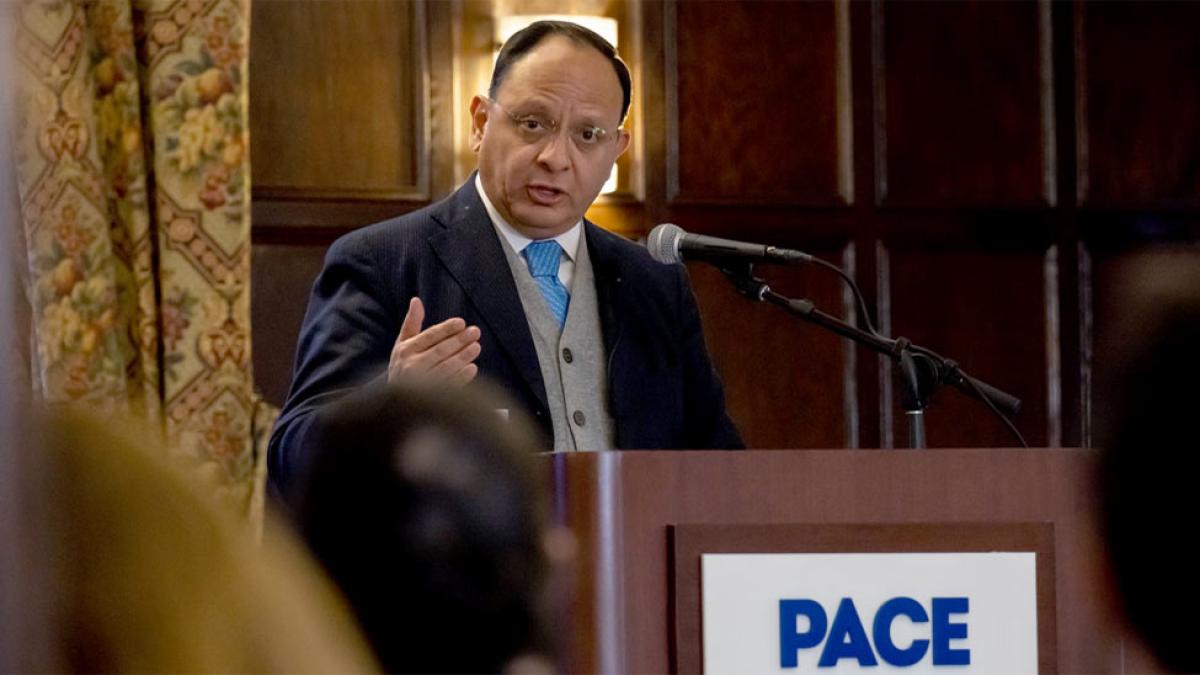
Jorge Islas López, Consul General of Mexico in New York, delivered the 2023 Blaine Sloan Lecture on International Law on Wednesday, February 1, speaking on "The Consular Duty and the Protection of Human Rights in New York.” The Blaine Sloan Lecture on International Law honors F. Blaine Sloan for developing the international law studies program at Pace. Consul General Islas López is also Giovanni Sartori Constitutional Law Professor, National Autonomous University of Mexico.
Following welcome remarks from Elisabeth Haub School of Law Dean Horace E. Anderson Jr., Pace University President Marvin Krislov had the pleasure of introducing Consul General Jorge Islas López. President Krislov noted that the Consul General is recognized for his expertise in constitutional law and as a staunch defender of human rights. Both Dean Anderson and President Krislov noted that the Consul General has been integral in Pace establishing and developing its international relationships with higher education institutions in Mexico.
During his insightful lecture, Consul General Islas López spoke about the history of consular law, which originated in Egypt, and he discussed the evolution and transformation of the consular institution. He noted that the consular institution has transformed over time according to new international customs and law to encompass its current main goal of protecting citizens abroad. He went on to note the importance of the relationship between Mexico and the United States and the resulting significance of the role of the Consul General of Mexico in New York. He noted the great diversity of New York and the welcoming atmosphere, “New York welcomes the world with open arms. I can assure you that because as Consul General I have been witnessing the great support of the different authorities at the state and municipal level granting help to all the migrants.”
Consul General Islas López discussed his office’s role in protecting human rights for Mexican nationals in New York. He noted that everyone in the consulate has an obligation to protect human rights. For example, every individual has a right to an identity and a nationality, the right to have a name, to have a citizenship, and more. He continued to explain that while the consulate office may not have the responsibility or authority to act on certain immigration rights, they can support migrants in other ways with labor laws and employment-related rights.
“We can work with the New Yorkers who welcome us with academic committees like Pace University to raise awareness and advocate for the fundamental rights of migrants,” said Consul General Islas López. He continued his lecture acknowledging the other protected rights that the consular office must protect, including legal rights, such as “the right to access to justice.” Consul General Islas López noted that the protection of this right can present an especially significant challenge in the United States, where access to legal services can be very expensive. Throughout his lecture, Consul General Islas López explained how the consular office protects human rights through the exercise of consular powers according to law – both international and local.
Jorge Islas López was appointed Consul General of Mexico in New York by President Andrés Manuel López Obrador and the unanimous ratification of the Senate of the Mexican Republic in 2019. As an active promotor of human rights, one of his main priorities as Consul General is to defend immigrant rights, regardless of their status. Mr. Islas is recognized nationwide in the private and public sector for his expertise in Constitutional Law and as a human rights defender. Mr. Islas wrote the first federal legislation in Mexico regarding class actions (2008-2009) and transparency and access to public information (2002) (Freedom of Information Act). He has also authored constitutional reforms of the states of Oaxaca and Michoacán, and he served as advisor for Mexico City's first constitution. Additionally, Consul Islas López was appointed by Rector Juan Ramón de la Fuente to serve as Universidad Nacional Autónoma de México´s (UNAM´s) General Counsel from 2004 to February 2008. He is also a distinguished constitutional law Professor at two leading universities in Mexico: UNAM and ITAM (Instituto Tecnológico Autónomo de México). He established the first course on the right to information in Mexico and Latin America and currently holds the Giovanni Sartori Chair at UNAM Law School. Additionally, Mr. Islas is an editorialist for El Universal, the largest newspaper in Mexico. He holds a Law Degree from UNAM and a Master of Laws from Columbia University in New York.
Following the lecture, law students, faculty and guests had an opportunity to ask questions during a Q&A session led by Haub Law Professor Tom McDonnell, an expert in international law, and to meet the Consul General during a reception.
The Blaine Sloan Lecture on International Law honors F. Blaine Sloan for developing the international law studies program at Pace. A member of the United Nations Legal Office for three decades and Director of the General Legal Division, Professor Sloan has contributed significantly to the development of private and public international law. He represented the Secretary General at the 1978 UN Conference on the Carriage of Goods by Sea; at the sessions from 1969–1978 of the UN Commission on International Trade Law (UNCITRAL); and at the 1966–1978 sessions of the Legal Sub-Committee on the Peaceful uses of Outer Space. His UN service involved him in that organization’s work on Vietnam, relief for Palestinian refugees, peacekeeping in the Middle East, the UN Commission on Korea, and as Legal Advisor to Security Council sessions in Africa and Latin America. Past Sloan lectures were delivered by various distinguished experts and academics in the field of International Law, including Benjamin B. Ferencz, Shoshana Netanyahu, Dr. Boris Kozolchyk, Professor Sarah Cleveland, and others.
Watch the 2023 Blaine Sloan Lecture on International Law
Pace University Adopts Okanagan Charter
Pace University yesterday adopted the Okanagan Charter, an international framework for promoting wellness on campuses globally, during a campus-wide fair lauding the importance of wellbeing for its students. Hundreds of students, faculty, and staff turned out across all three of its campuses to celebrate the signing as well as to see dozens of exhibitors and programs available to members of the Pace community.
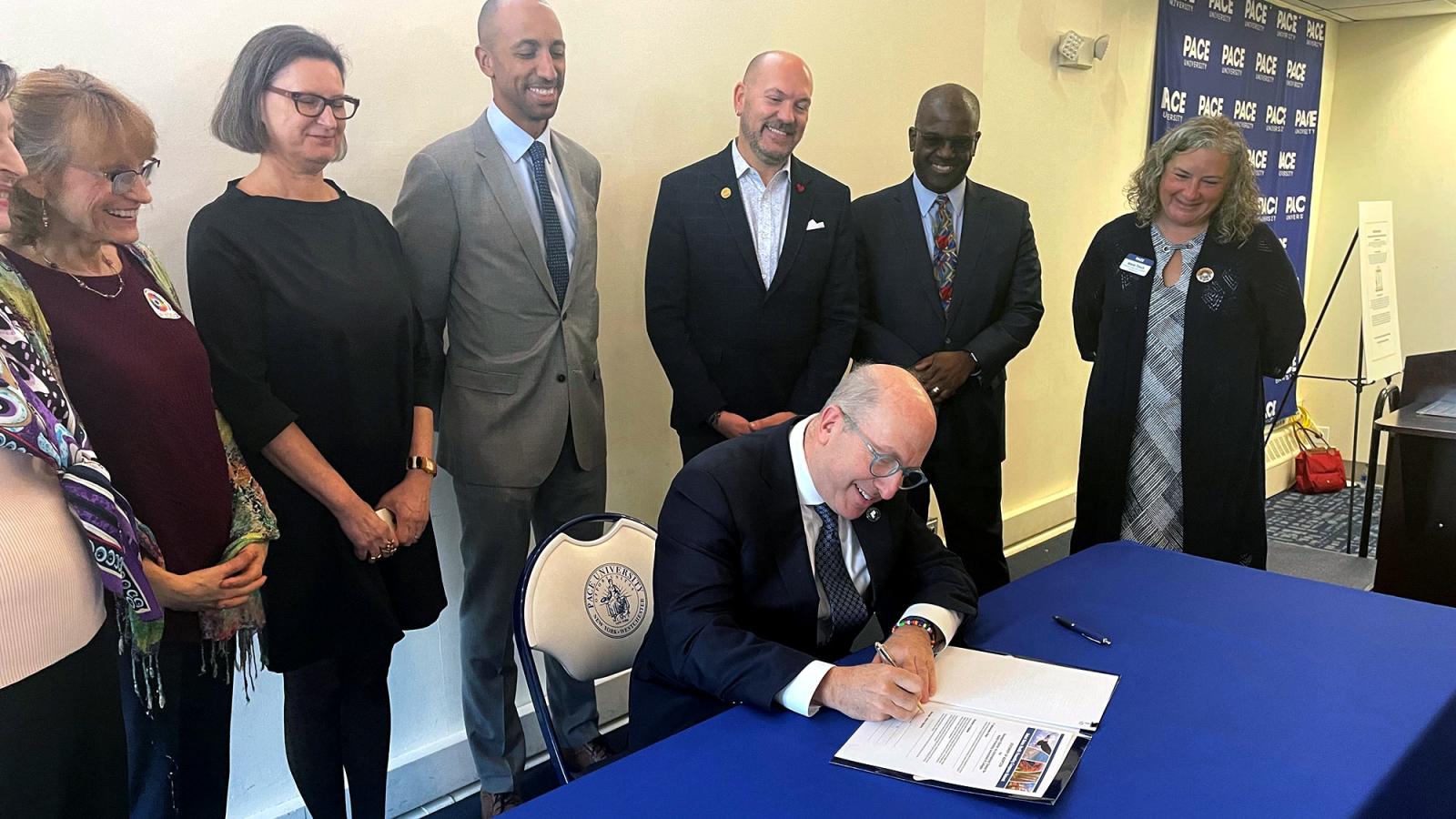
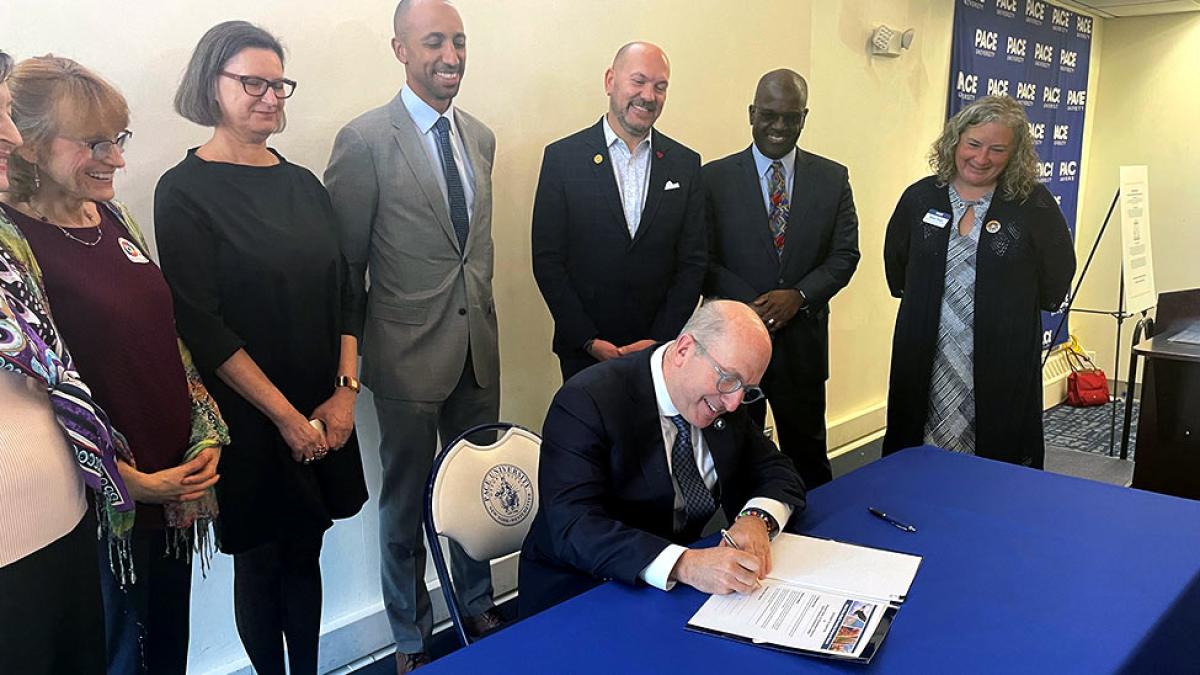
Hosts Inaugural Campus-wide Wellbeing Fair
Charter is an Internationally Recognized Initiative That Will Mark Pace as a Health-Promoting University
Pace University yesterday adopted the Okanagan Charter, an international framework for promoting wellness on campuses globally, during a campus-wide fair lauding the importance of wellbeing for its students.
Hundreds of students, faculty, and staff turned out across all three of its campuses to celebrate the signing as well as to see dozens of exhibitors and programs available to members of the Pace community.
“At Pace University, we are determined to give our students the tools they need to succeed in college, life, and their careers,” said Pace President Marvin Krislov. “Today, we know that mental health and wellness supports are a key part of that, and we are expanding our investment in those crucial services—for our students, our staff, and our faculty. We are pleased to sign on to the Okanagan Charter and renew our commitment to being a health-promoting institution for everyone in our community.”
The Charter has two calls to action: to embed health into all aspects of campus culture, across the administration, operations, and academic mandates; and to lead health promotion action and collaboration locally and globally. Created in June 2015, the Charter provides institutions with a common language, principles, and framework to become health and wellbeing promoting campuses.

To celebrate, President Krislov signed the Okanagan Charter and Pace kicked-off their inaugural Wellbeing Fair for its community on all 3 campuses – lower Manhattan, Pleasantville, and White Plains. The Wellbeing Fair is inclusive of the entire campus community, featuring 70+ tables of well-being information and activities hosted by members of the Pace Community and neighboring organizations. This is part of Pace University’s wellness strategic plan that integrates an approach to physical, mental, and financial well-being for a diverse community of students, faculty, and staff. In fact, advancing wellness is a priority for Pace’s diverse community.
Pace University fosters an environment that promotes inclusion, equity, mental/emotional support, and healthy lifestyle choices to improve the overall quality of life. In developing an approach to promoting wellbeing on campus, Pace University organized their efforts and goals within three pillars: Diversity, Sustainability, and Wellness. Pre-existing goals developed by the Division of Diversity, Equity and Inclusion, Division of Campus Planning and Facilities, and the Wellness Advisory Committee with input from key constituents from across the university have informed the development of this charter document.
“We are so thrilled that Pace will be signing the Okanagan Charter to join a higher education consortium committed to being health-promoting institutions,” said Todd Smith-Bergollo, senior associate dean for students and Wellbeing Fair co-chair. “This brings together our university’s sustainability, DEI, and wellness goals and allows us to build more momentum toward reaching these goals.”
Pace will focus upon three key principles for action to contribute to the wellbeing of people, places, and the planet. Pace University endeavors to advance diversity, equity, inclusion, and social justice where everyone can experience dignity and respect while having the opportunity to flourish while living, learning, and working in a sustainable, resilient, and thriving ecosystem.
“We are very pleased to be the 15th university in the United States to adopt the Charter,” said Richard Shadick, director of the Counseling Center in New York City. “The adoption will be a boon for the wellbeing of our students, staff and faculty.”
For Stephanie Spruck, a sophomore majoring in applied psychology and human relations, Pace’s signing of the Okanagan charter reflects its dedication to students, faculty, and administration. “Pace not only cares for the community as educators and learners, but also for who we are as individuals, committed to our overarching health,” she said. “Wellness is needed now more than ever, and I feel proud to be part of a community that values and prioritizes wellness first and foremost.”
About Pace University
Since 1906, Pace University has educated thinking professionals by providing high quality education for the professions on a firm base of liberal learning amid the advantages of the New York metropolitan area. A private university, Pace has campuses in New York City and Westchester County, New York, enrolling nearly 13,000 students in bachelor’s, master’s, and doctoral programs in its Dyson College of Arts and Sciences, Lubin School of Business, College of Health Professions, School of Education, the Elisabeth Haub School of Law, and Seidenberg School of Computer Science and Information Systems.
Experiential Learning at its Best
Students in Dyson’s Industrial Media Production class put their skills to the test as they partnered with the Berkshire Theatre Group, a renowned regional theater that was staring into the abyss after the COVID-19 pandemic.

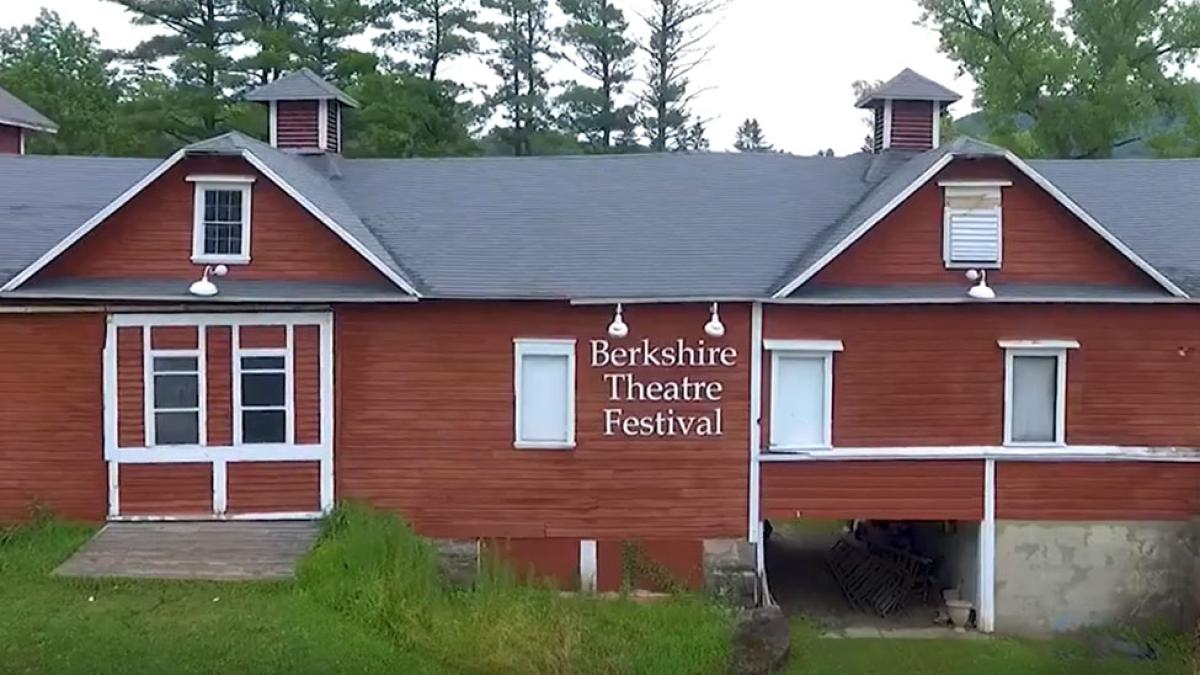
When Pace President Marvin Krislov approached Dyson Professor Maria Luskay, EdD, about helping the Berkshire Theatre Group (BTG), a renowned regional theater based in western Massachusetts that was staring into the abyss after the COVID-19 pandemic, she knew it was a match.
Professor Luskay was thrilled as she was looking for a nonprofit to partner with so that her students could work with a client that needed commercials, public service announcements, and promotional video.
It was the perfect scenario for experiential learning, she said.
Before long, BTG—whose ranks over the years include the likes of Al Pacino, Sigourney Weaver, Anne Bancroft, Frank Langella, and scores of other theater luminaries—met with students with an open call to help the organization tell its story.
BTG made national headlines during the pandemic when it became the only regional theater group in the nation to produce a showing of Godspell with professional actors before a live audience. It was celebrated by The New York Times, L.A. Times, Boston Globe, and CNN, among other media, and considered a test case for whether in-person theater could safely return.
Knowing this was a unique time in the group’s history, the organization filmed hundreds of hours of footage and interviews with an intention of documenting its journey through the pandemic.
The challenge ahead, as Executive Director Nick Paleologos told the students last semester, was that while COVID supports and aid was gone, COVID was not. BTG was staring at its biggest crisis since WWII—and fighting for its very existence. It needed patrons.
“They are working with a real client,” Professor Luskay said. “It’s not just a class—it’s taking what you learn and using it. It’s real-world experience.”
Students needed to understand the creative process while incorporating teamwork, time management, and deadlines—much like an agency competing for the project. BTG opted to use both group videos as they took entirely different approaches to the assignment.
For Caroline O’Kane, who recently earned her master’s in Communications and Digital Media, it was a great experience and resume-builder.
“We put our skills in producing to the test as we gained experience as a team—learning from personal and group strengths and weaknesses,” she said. “The most rewarding part of this project was knowing that we helped a real client showcase their hard work to the public. In so many ways, the COVID-19 pandemic is thought of as a dark time of loss and isolation, and this theater group’s will to perform provided so much hope and light.”
More from Pace
Criminal Justice major and Millennium Fellow Danielle Harari set out to tackle period poverty in prison before realizing the issue was impacting her on-campus community. Now, with help and inspiration from fellow students, she’s working to ensure every student in need on has access menstrual products.
Derek Segars ’23 comes from a family of Detroit public servants and has always placed a strong value on it as a result. “My great-grandfather was a bus driver for the City of Detroit, my grandfather was a police officer, my father was a fire safety inspector and arson investigator, and my mother was a social worker for 25 years,” said Derek. “I grew up surrounded by public servants and understanding the importance of dedicating your career to helping others.”
Pace’s continued success in the National Cyber League, an intercollegiate competition testing students’ cybersecurity mettle, demonstrates one of the many ways Seidenberg continues to stand out as a leader in cybersecurity.
February 2023: A Message from President Krislov
One of the many pleasures of academic life is that we get two opportunities to restart and renew: both at the start of the academic year each September and at the start of the new calendar year each January. As we embark on this new year at Pace University, and our new Spring 2023 semester, it feels as though we’re making an especially fresh start.
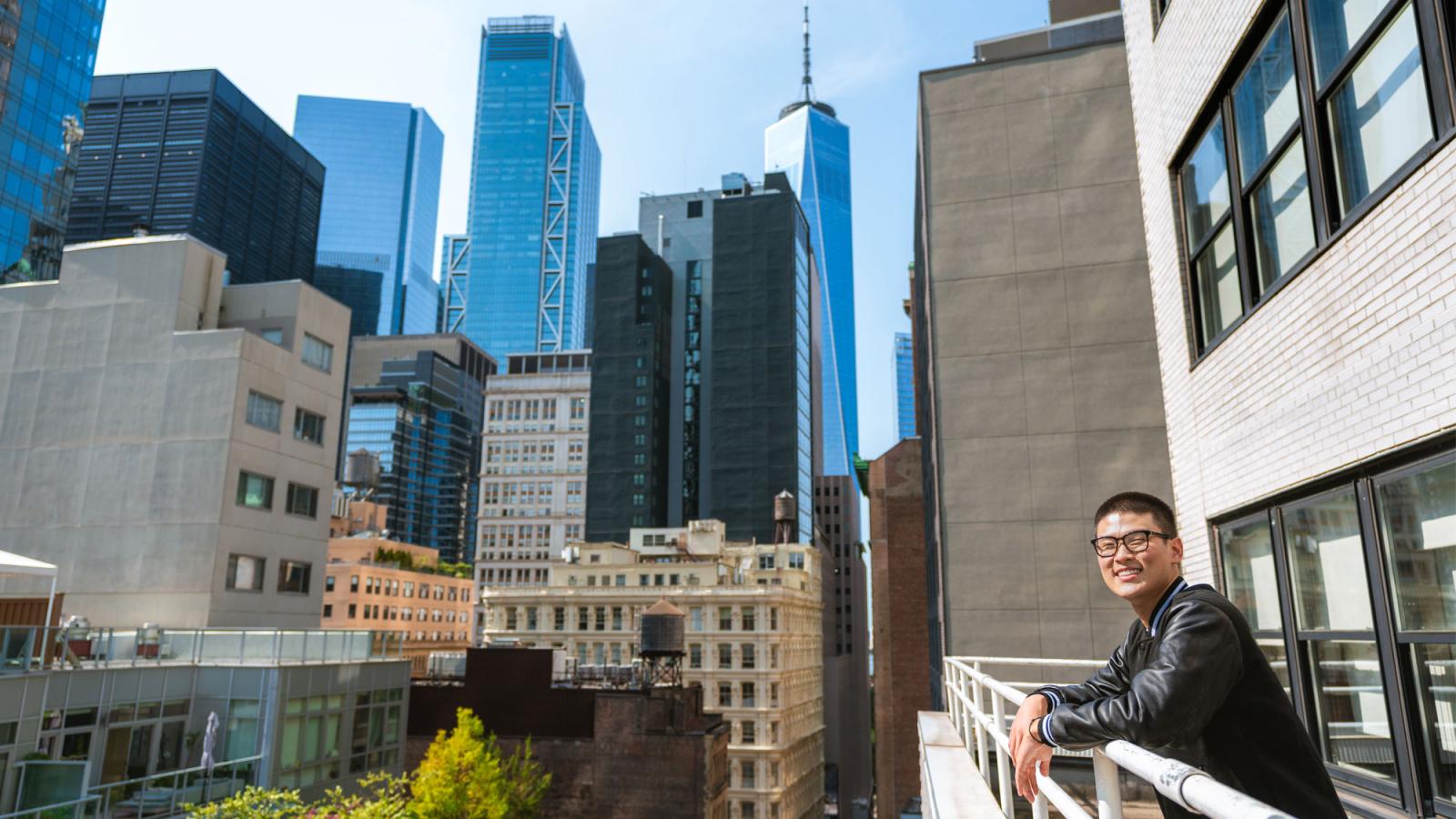
One of the many pleasures of academic life is that we get two opportunities to restart and renew: both at the start of the academic year each September and at the start of the new calendar year each January. As we embark on this new year at Pace University, and our new Spring 2023 semester, it feels as though we’re making an especially fresh start.
I’ll be talking about this new beginning in detail at the State of the University address, set for Wednesday, February 22, at 12:10 p.m. I’ll be speaking in the Student Center on our New York City Campus, and I encourage you to attend if possible. We’ll also livestream the speech, and you can watch from any of our campuses. After the speech, I’ll take questions both from people in the room and those submitted from remote viewers. (Next year, I’ll be back in Westchester!)
I’ll talk about where things stand at Pace today, and where we’re going in the future. We’ll look at the pipeline and retention efforts we’re building to ensure we bring in new students and keep them here till graduation. We’ll talk about the efforts underway to support mental health and wellbeing for everyone on our campuses. And of course we’ll dive into the plans to transform our New York City Campus with the new 15 Beekman academic and residential building set to open for Fall 2023, and the major renovation soon to start on the east side of One Pace Plaza.
There are new things happening all across Pace. Elsewhere in this issue of Pace Now, you can read about students in our Industrial Media Production who helped a noted regional theater company to bounce back after the pandemic, how our National Cyber League competitors are soaring to new cybersecurity heights, and even how Hinako Tanakamaru ’24, an international student from Japan, is adapting to her new life in the Big Apple.
I’m excited for all these new developments across our community. I’m excited to be back for this new semester. And I’m excited for everything we have ahead of us.
More from Pace
Pace’s continued success in the National Cyber League, an intercollegiate competition testing students’ cybersecurity mettle, demonstrates one of the many ways Seidenberg continues to stand out as a leader in cybersecurity.
Students in Dyson’s Industrial Media Production class put their skills to the test as they partnered with the Berkshire Theatre Group, a renowned regional theater that was staring into the abyss after the COVID-19 pandemic.
Derek Segars ’23 comes from a family of Detroit public servants and has always placed a strong value on it as a result. “My great-grandfather was a bus driver for the City of Detroit, my grandfather was a police officer, my father was a fire safety inspector and arson investigator, and my mother was a social worker for 25 years,” said Derek. “I grew up surrounded by public servants and understanding the importance of dedicating your career to helping others.”
Profs Take an Innovative Approach to Interdisciplinary and Cross-cultural Teaching, One Film at a Time
Associate Professor Satish Kolluri, PhD, and Professor Joseph Lee, PhD, challenge students to explore complex themes of family, love, art, culture, and politics through Hong Kong and Bollywood cinema.
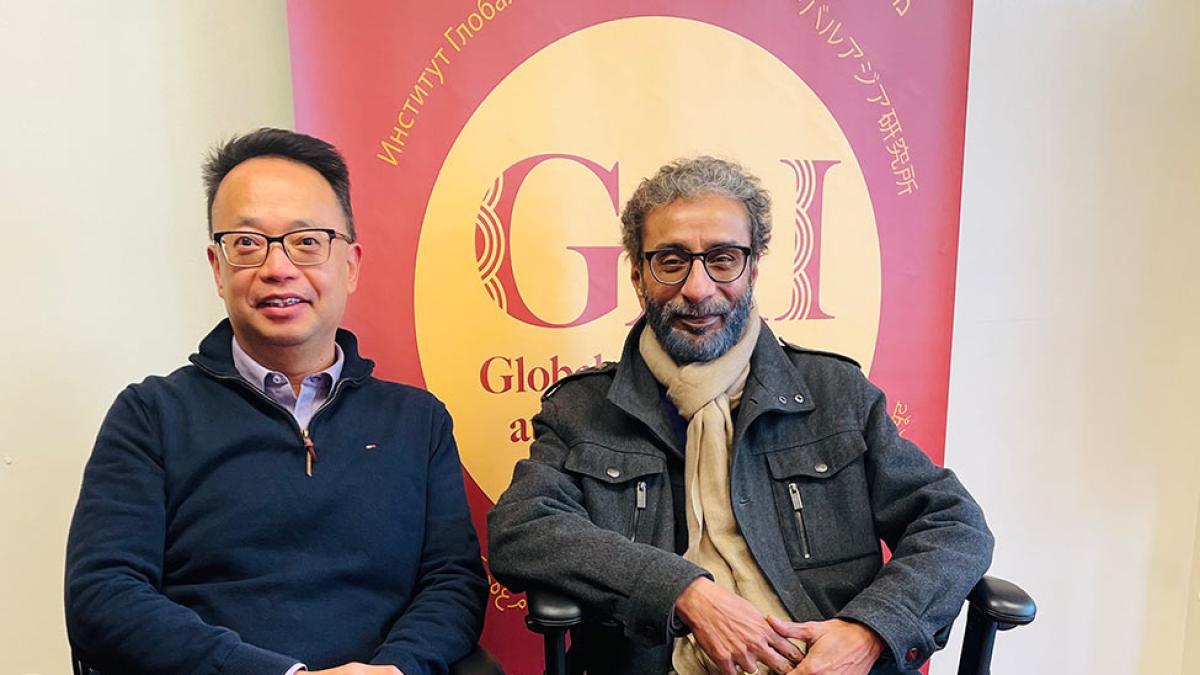
Film, as an art form, has the power to transport the viewer anywhere in the world and beyond. In a one-of-a-kind interdisciplinary course through Dyson College, undergraduate students travel across the globe through cinema, diving deep into complex themes of family, love, art, and politics.
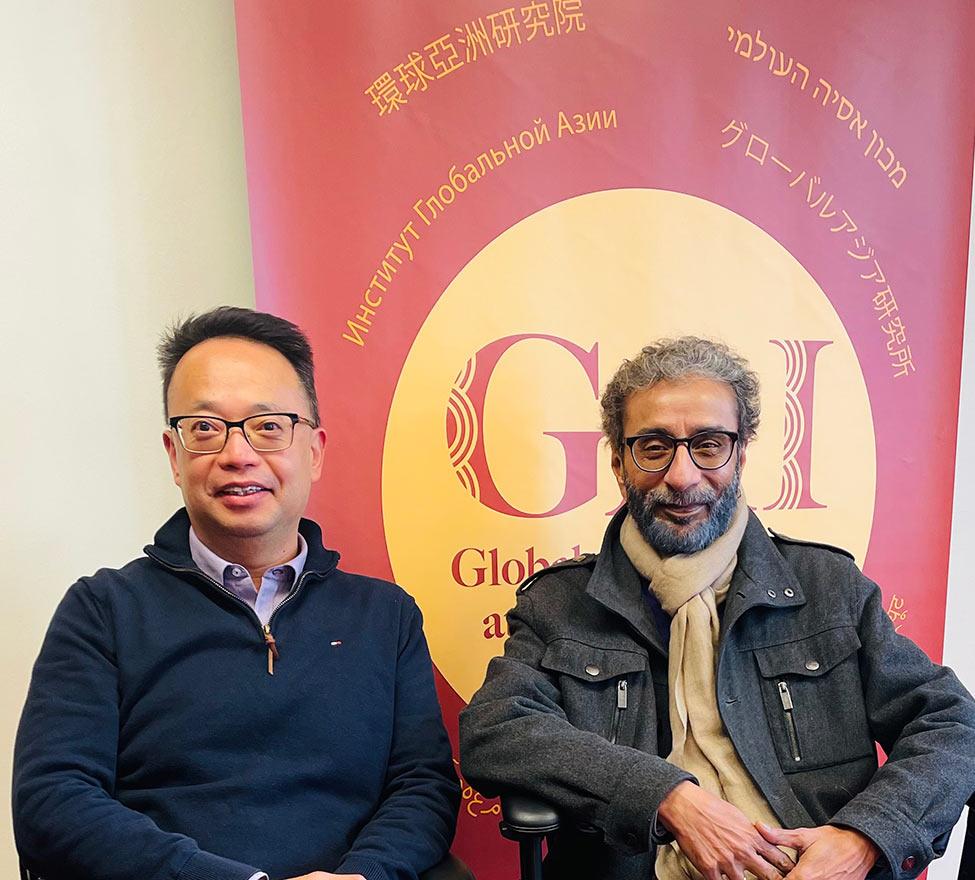
Guided by the belief that a well-rounded education doesn’t fit into a neat box, Associate Professor of Communication and Media Studies Satish Kolluri, PhD, and Professor of History Joseph Lee, PhD, co-teach INT297A Hong Kong and Bollywood: Globalization of Asian Cinema, a course that challenges students to explore ideas across cultures and think in ways that transcend the boundaries of academic disciplines.
“Lived reality is messy,” said Kolluri. “Academic disciplines can be so pristine and pure, but you have to mix them up. It has to be intellectually messy.”
With that conviction at the forefront of their work, longtime friends Kolluri and Lee continue to adapt their course curriculum to today’s complex landscape, while also advancing their prolific professional partnership outside the classroom, co-authoring research articles on timely and globally significant political issues, each offering their own unique perspective.
The first course of its kind
More than two decades ago, Kolluri and Lee met when they both began teaching at Pace, and the two became fast friends. Their different cultural backgrounds—Lee is of Chinese descent and Kolluri is of Indian descent—and academic disciplines have not only enriched their friendship and professional partnership but have resulted in innovative developments in interdisciplinary study at Pace University.
In 2005, when Pace introduced “learning communities,” six-credit courses that encourage immersive study and deeper bonds among peers, Kolluri and Lee proposed an interdisciplinary course on Hong Kong and Bollywood cinema, born out of their organic discussions over many years. The course, INT 297A Hong Kong and Bollywood: Globalization of Asian Cinema, was the first of its kind at an American university.
I realized how much I had been missing culturally and historically by not watching Asian films and that Hollywood is certainly not the only source for high-quality cinema. Asian films have opened me up to a broader cultural experience.
“We’re exploring universal themes [in the course],” said Kolluri, “Romance, love, trauma, mourning, and how those themes are reflected in cinema. The two of us were having those conversations, looking at cinema through a historical lens and a cultural lens, and the themes emerged from the conversations we had.”
Lee added that Hong Kong and India, both former British colonies, share similar narratives, which lends itself to a natural connection in a course of this kind. “That larger historical context enables us to find common historical backgrounds,” he said. “And then from there, we can relate to how independent filmmakers and commercial filmmakers from both societies construct their artistic works.”
Marco Del Bene ’25, Communication and Media Studies, BA, who took the course recently, discussed the impact of the course’s content: “I realized how much I had been missing culturally and historically by not watching Asian films and that Hollywood is certainly not the only source for high-quality cinema. Asian films have opened me up to a broader cultural experience.”
Expanding intellectual horizons
The course material has continued to evolve over time—“the syllabus is a breathing document,” said Kolluri—adding more recent films and discussing ever-changing contemporary topics. Kolluri and Lee note, however, that some classics have been mainstays in the curriculum, such as films from the Hong Kong New Wave and Indian Parallel Cinema movements, which both addressed political and civil issues in their own societies.
Additionally, Wong Kar-Wai’s In the Mood for Love, one of the most acclaimed works of Asian cinema, a romantic drama that premiered at the Cannes Film Festival in 2000, has consistently been a student favorite.
“It was unlike anything I have watched before,” said Anastasia Kanukov ’24, Economics, who took the course recently, “specifically within the cinematic details and the way that it was directed.”
Along with classic films that remain culturally significant, many motifs have endured since the course’s inception, including the exploration of Asian parenting dynamics and food as a source of togetherness. Analyzing and discussing the cultural, political, and artistic contexts of the films shown in class are the foundational aims of the course, and Kolluri and Lee have worked to preserve these objectives, even as the material continues to shift. “It’s about getting students to think critically, making them think like film critics, having them treat each film as an intercultural text,” said Kolluri.
The course also challenges students to think outside the American traditions of film of which most are accustomed. “We hope the students can move beyond the old Hollywood paradigm to a knowledge of these emerging cultural forces from East Asia and South Asia in the media landscape, where creative and innovative talents deal with historical and contemporary cultural worlds,” said Lee.
The ability to connect with others around the world via Zoom has also made an impactful shift in the way Kolluri and Lee teach the course. Students have now had the opportunity to have post-screening discussions with directors from Paris, India, and Hong Kong, learning about the directors’ artistic processes and asking thoughtful questions.
Symbiotic teaching and research
“The opportunity for us to collaborate, brainstorm, and work on joint projects together has been one of the most rewarding parts of the course for me,” said Lee, noting that the pair have worked on several endeavors, including creating the textbook for their course.
Because the course was the first of its kind, a textbook on the subject matter did not exist at its inception. Instead of writing the entire book themselves, Kolluri and Lee sought diverse perspectives from fellow academics. “We thought, ‘Why not invite chapters from people who can think through such interesting issues?’” said Kolluri.

Kolluri and Lee served as editors of the book and co-authored the introductory chapter in Hong Kong and Bollywood: Globalization of Asian Cinema. The book is also offered free of charge online, relieving students of the financial burden of purchasing the book and making the material widely accessible to others across the country who may wish to teach or learn the content.
Additionally, drawing from their rich experience of teaching the course since 2005, Kolluri and Lee contributed a chapter on "Globalizing the American Classroom with Hong Kong and Bollywood Cinemas" (PDF) to a book entitled Internationalization in Action: Leveraging Diversity and Inclusion in Globalized Classroom.
Kolluri added that the pair’s teaching and research inform one another, sharing their scholarship with their students and drawing inspiration from classroom discussions and student film critiques. For example, the pair co-authored a research article entitled “An Inter-Asian Perspective on China’s Rise and Power Shifts in Asia” for Social Transformation in Chinese Societies, which discusses “Hong Kong’s years-long pro-democracy movement, Taiwan’s democratization, and India’s anti-China sentiments.”
“We have been thinking a lot about this subject of soft power,” said Lee. “Cinema is actually a good case study to see how rising economic states exercise and expand this soft power on a global scale. So, we thought a Hong Kong and Bollywood course could lead to speaking on a wider China-India power competition in the early 21st century. That’s how we use our teaching to address some larger academic discourse in an external publication.”
Kolluri mentioned that the pair’s ability to view developing contemporary issues through an inter-Asian lens lends itself to continued collaboration. And after years of working so closely, writing together now comes naturally to the pair.
“We have very different styles of writing and thinking, but it’s very organic,” said Kolluri. “Intellectually, when you’re on the same plane, it helps to think through issues. I’ve learned a lot about Hong Kong and China through the years, thanks to Joseph.”
Lifelong learners
As much as Lee and Kolluri learn from each other, they also share an enthusiasm for learning from their students.
“The students’ film critiques are mind-blowing,” said Kolluri. “They’re coming from different backgrounds, races, ethnicities, classes, and to hear them participate in class is just incredible.”
And the appreciation extends both ways. Kolluri and Lee noted with pride that they have only ever received positive student evaluations from the course. Del Bene called the course an “enlightening and gratifying experience,” while Kanukov noted, “The professors are absolutely amazing and will bring you into a whole new world of film.”
In addition to their teaching, Kolluri is working on translating his mother’s book into English and on a research paper on the inclusion of consciousness studies in a liberal arts education. Lee is continuing to develop engaging programming for the Global Asia Institute and Global Asia Studies academic program, areas of Pace he hopes continue to grow.
“You’re always learning,” said Kolluri. “Even if you don’t have a movie title with your name next to it, you’re always learning. The moment you stop learning, it’s bad news.”
More Dyson Digital Digest Stories
This fall, Dyson students enrolled in three separate courses had the unique opportunity to curate the exhibit, Continued Relevance: News Photos from the George Stephanopoulos Collection, in the Pace University Art Gallery. The result of this process was a select total of 54 images, each carefully chosen by a student and displayed with their personal commentary, from a gift of more than 1,400 historic news photos from the veteran news analyst and former White House Director of Communications, George Stephanopoulos.
From professional quality documentary production to in-the-field athletics coverage, students in the Media, Communications, and Visual Arts department on the Westchester Campus are gaining valuable experience.
Emmy Award-winning producer and third-generation alumna Rachel Skopp-Cardillo’s success is deeply rooted at Pace.
Pace University Art Gallery Hosts Chinatown Art Brigade (CAB) Exhibit, “Degentrification Archives”
Pace University Art Gallery is pleased to present “Degentrification Archives,” an exhibit by the Chinatown Art Brigade (CAB) that uplifts the stories of people most directly impacted by the gentrification of Manhattan’s Chinatown, with the long-term goal of protecting and preserving their neighborhood. The exhibit opens on Friday, February 10 with a reception from 5:00 p.m.–7:00 p.m. and remains on view through Saturday, March 25. This exhibit is made possible by the New York State Council on the Arts with the support of the Office of the Governor and the New York State Legislature.
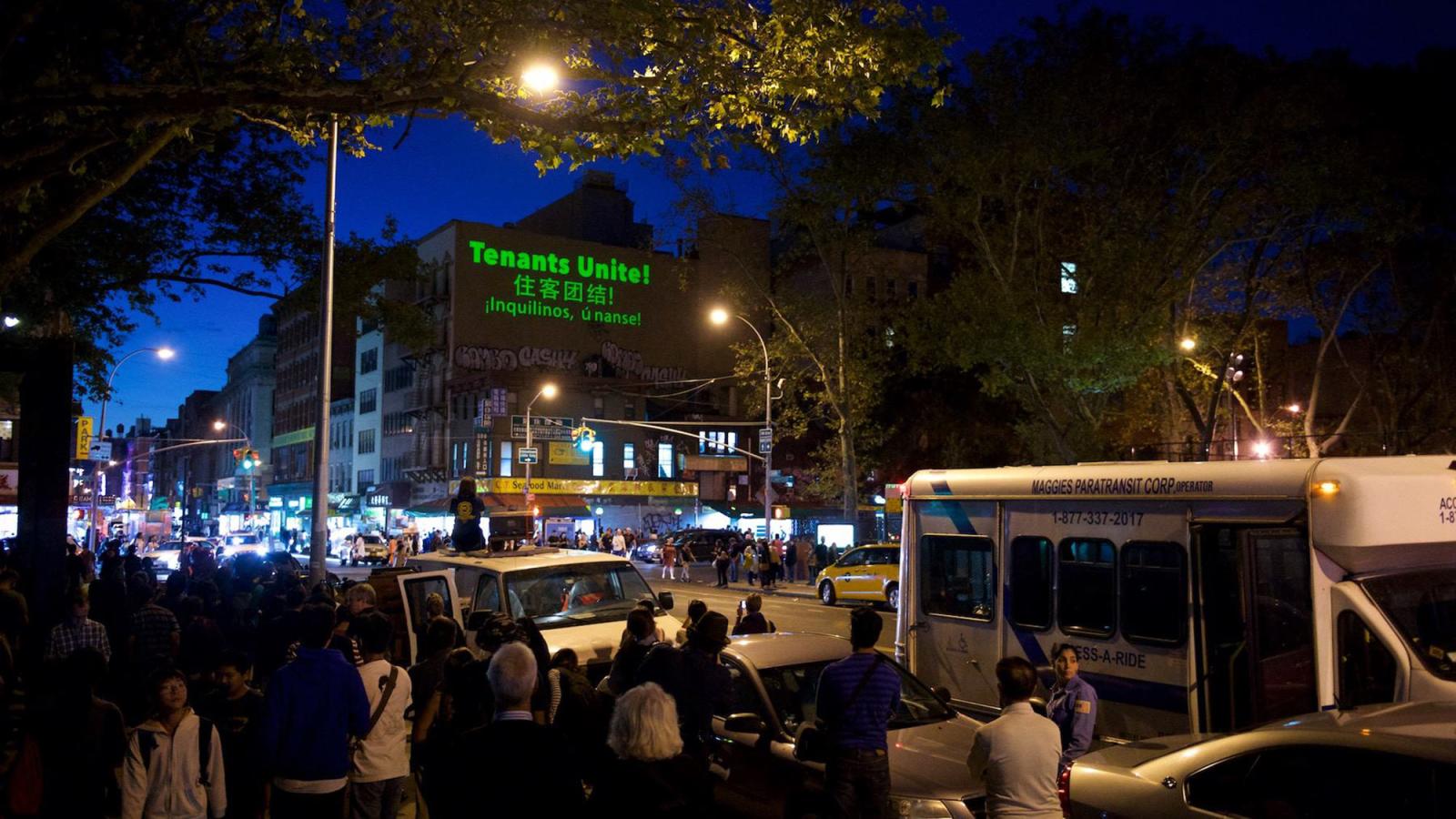
Works featured highlight gentrification of Manhattan’s Chinatown
Pace University Art Gallery is pleased to present “Degentrification Archives,” an exhibit by the Chinatown Art Brigade (CAB) that uplifts the stories of people most directly impacted by the gentrification of Manhattan’s Chinatown, with the long-term goal of protecting and preserving their neighborhood. The exhibit opens on Friday, February 10 with a reception from 5:00 p.m.–7:00 p.m. and remains on view through Saturday, March 25. This exhibit is made possible by the New York State Council on the Arts with the support of the Office of the Governor and the New York State Legislature.
CAB is an intergenerational collective driven by the fundamental belief that cultural, material, and aesthetic modes of production have the power to create change. CAB is comprised of Asian American and Asian diaspora identifying visual artists, media makers, writers, educators, archivists, and organizers with deep roots in Manhattan's Chinatown.
Together they make work that centers art and culture to support community-led campaigns around issues of gentrification and displacement. In conjunction with the exhibit, a panel of CAB members will give an artist talk on Wednesday, February 22 at 5:00 p.m. at the Pace University Art Gallery.
“Chinatown is one of the last affordable working class and immigrant communities in Manhattan,” said co-founder of Chinatown Art Brigade, Betty Yu. “The rise of predatory real estate practices and large-scale corporate investment sanctioned by city policies has pushed out low-income tenants in Chinatown, raised rents and destroyed the small businesses and homes that are the heart, soul and lifeblood of our city’s economy.”
CAB members explain: “This exhibition centers those at the forefront of protecting Chinatown, one of the last affordable working class and immigrant communities - its low-income residents, tenants, community activists and small business owners. We highlight those spaces that have served the community for decades, which are rapidly being replaced by hotels, condos and galleries. As the city becomes increasingly unaffordable for long-time residents, we ask who are the major players in this wholesale transformation of the city’s poor, and working-class neighborhoods?”
The “Degentrification Archives,” exhibition also includes archival material, photographs, videos, place-keeping maps, large scale projections, banners, and posters from direct actions spanning CAB’s seven-year history of actions. Additionally, the exhibition also celebrates the racial justice, housing rights, and community organizing history of CAAAV Organizing Asian Communities, CAB’s partner organization. In the dedicated lab space, a timeline highlights CAAAV’s 37-year history along with photographs, videos and related ephemera.
The Pace University Art Gallery’s exhibits and events are free and open to the public. Regular gallery hours are Tuesday – Saturday from 12:30 p.m.–4:00 p.m. and by appointment. Please note that proof of COVID-19 vaccination is required for entry.
IMAGE CREDITS: Tenants Unite projection by the Chinatown Art Brigade, by Louis Chan.
About Pace University
Pace University has a proud history of preparing its diverse student body for a lifetime of professional success as a result of its unique programs that combine immersive academics and real-world experiences. Pace is ranked the #1 private, four-year college in the nation for upward economic mobility by Harvard University’s Opportunity Insights, evidence of the transformative education the University provides.
About Dyson College of Arts and Sciences
Pace University’s liberal arts college, Dyson College, offers more than 50 programs, spanning the arts and humanities, natural sciences, social sciences, and pre-professional programs (including pre-medicine, pre-veterinary, and pre-law), as well as many courses that fulfill core curriculum requirements. The College offers access to numerous opportunities for internships, cooperative education and other hands-on learning experiences that complement in-class learning in preparing graduates for career and graduate/professional education choices.
About the Pace University Art Gallery
Founded with the conviction that art is integral to society, the Pace University Art Gallery is a creative laboratory and exhibition space that supports innovation and exploration for both artists and viewers. Open to students, staff, and faculty from across the Pace campuses and, equally, to the Lower Manhattan community and visitors from around the world, the Art Gallery encourages personal investigation and critical dialogue via thought-provoking contemporary art exhibits and public programming. Enhancing the Art Department's Bachelor of Arts and Bachelor of Fine Arts programs, the Art Gallery offers students real-world opportunities to exhibit their own art and to work directly with professional artists to install and promote exhibitions. All exhibits and events are free and open to the public.
The Student in Pursuit of Period Poverty Solutions
Criminal Justice major and Millennium Fellow Danielle Harari set out to tackle period poverty in prison before realizing the issue was impacting her on-campus community. Now, with help and inspiration from fellow students, she’s working to ensure every student in need on has access menstrual products.
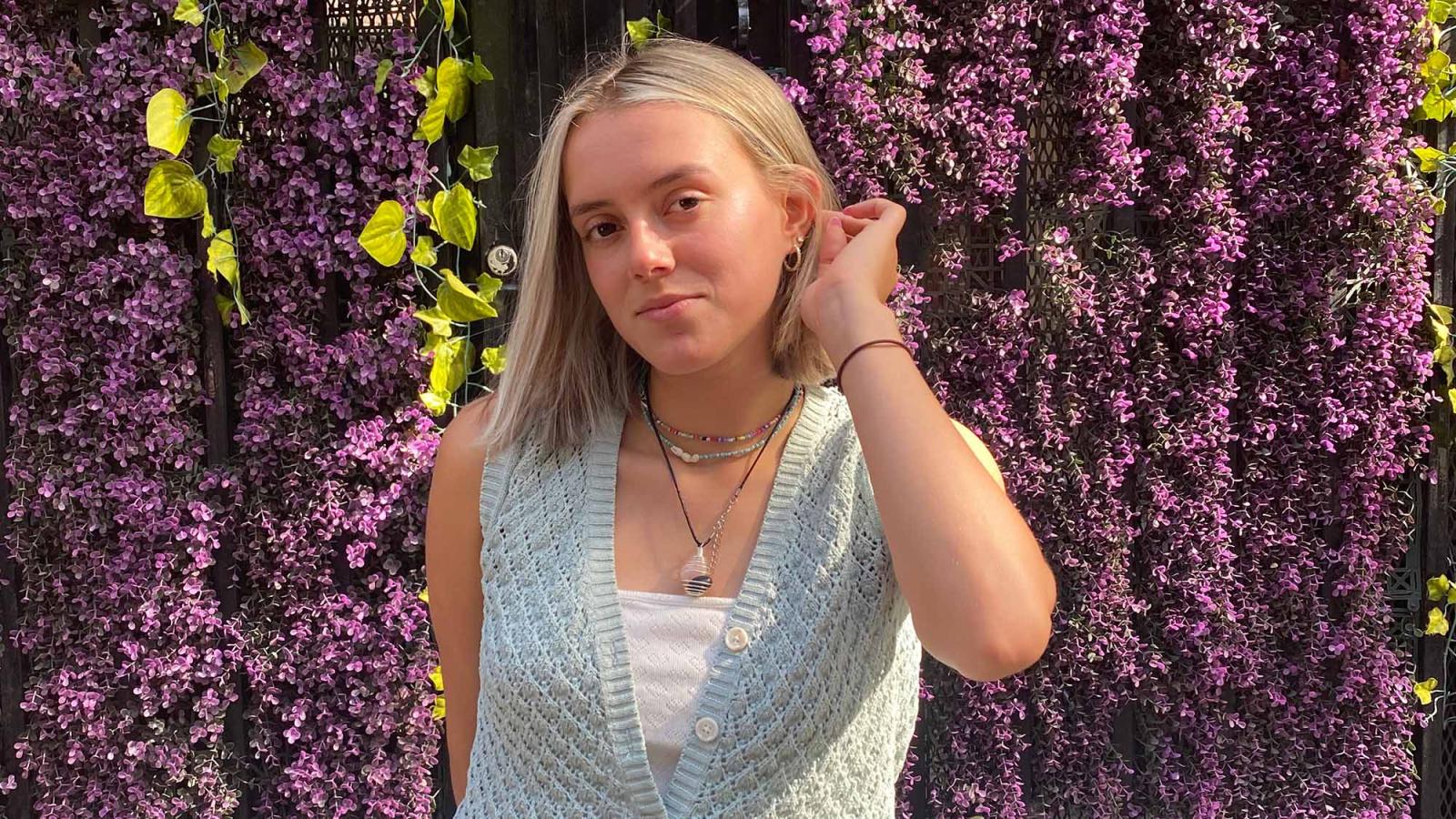
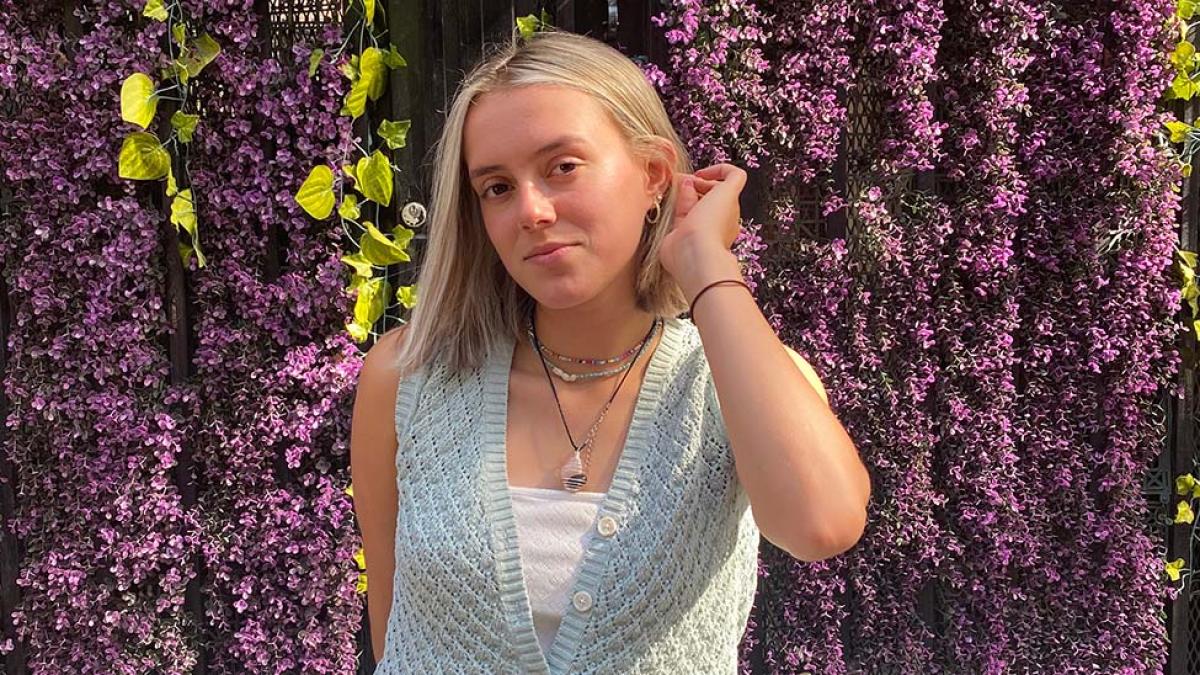
When three Millennium Fellows created the Fare Trade program, an initiative aimed at addressing food insecurity on campus, Professor Meghana Nayak, PhD, said, “Every wonderful thing we have at Pace is because a student thought, ‘What if this could happen?’ or because they have taken a great idea to the next level.”
Danielle Harari ’24 is the latest Millennium Fellow to affirm this theory.
“I’ve been taking part in activism for a while and it was starting to just gnaw at me. Protesting wasn’t enough. I wanted to find a way to get more resources, I wanted to be able to do more.” Danielle is a Criminal Justice student with a passion for addressing inequality. When she wanted to expand the scope of her work, the Millennium Fellowship particularly appealed to her. As a Fellow, she is tasked with creating an initiative that addresses one of the UN’s Sustainable Development Goals, with support from professors and other leaders in the field.
Every wonderful thing we have at Pace is because a student thought, ‘What if this could happen?’ or because they have taken a great idea to the next level.
—Meghana Nayak, PhD
Danielle chose the tenth Sustainable Development Goal—reduce inequalities within and among countries—with a focus on period poverty. “Period poverty is lack of access to menstrual products and menstrual hygiene education,” she explains. “Those who menstruate are disproportionately impacted by lack of opportunity, because they have to spend money on menstrual products which aren’t readily available to them.”
Originally, because of her interest in criminal justice, Danielle hoped to address period poverty in prisons, but she wasn’t sure where to start. “It was harder for me to get all the resources needed within prison facilities,” she explains. “As I started my research, I realized the issue was happening within my own community and it would be beneficial to address it here at Pace first.”
Period poverty studies reveal that 64% of low-income menstruators in the US cannot afford menstrual products, and 1 in 4 students struggle to afford menstrual products. Taxed as a luxury item in most states, menstrual products aren’t always accessible to those who may have to prioritize food over period products, increasing potential health risks, such as reproductive and urinary tract infections.
These pain points aren’t just a one-off monthly issue. In fact, according to research by the National Organization for Women, the average cost of menstrual products is about $20 per cycle, or roughly $200–$300 per year. Over a lifetime, that’s nearly $20,000.
Protesting wasn’t enough. I wanted to find a way to get more resources, I wanted to be able to do more.
—Danielle Harari
Danielle presented this research and more virtually at Pace’s third annual Social Justice Week with Sue Maxam, EdD, Pace’s liaison for the Millennium Fellowship. More than 50 people participated, and it quickly grew into a discussion about what they could be doing for their community. “We discussed where we see period poverty in our lives,” Danielle says. “A lot of people there were college students and they said they didn’t see enough menstrual products in the bathrooms on campus. Someone there said they’d be willing to donate products that we could make available on campus. I thought that was an amazing idea, so I looked into how we could do that on a larger scale.”
As Danielle began to discuss tackling period poverty on campus with other Pace Community members, she began to get more input that helped evolve the suggestions of her fellow students. Pace already has menstrual product dispensers installed in every bathroom, but according to Danielle, “We noticed that a lot of the dispensers weren’t getting refilled enough. One student, Tinuade McClish, had the idea to add a QR code to each dispenser that notifies facilities that the dispenser needs to be refilled.” Their new proposal a simple solution to a problem that would likely only be noticed by the people it impacted, brought forward to a student passionate enough to take those steps and make a change.
Danielle’s project is currently underway. She’s created an Amazon Wishlist for those who may not be on campus or prefer the ease of online purchasing to donate period products. On the New York City Campus, students can drop off donations and eventually pick up products at the LGBTQ Center. On the Westchester Campus, donations can be left with the Dean for Students in Kessel Student Center, with picks ups at the food pantry. “I think it’s very beneficial that on the Westchester campus products are being dispersed through the pantry,” Danielle adds, “because it will ensure that those who need them most will have access to them.”
Even in my own community, I’ll never fully understand the extent that period poverty can impact others. But seeing other people’s perspective is always the place to start.
—Danielle Harari
Danielle hasn’t forgotten her original desire to address period poverty in prisons, and she’s hoping to use everything she learns from the on-campus initiative to eventually launch a similar one in prisons. “It’s still a passion of mine,” she says. “I’m taking a course this semester that works with incarcerated people, so I’m really excited for the opportunity to gain that perspective and some resources.”
In the way that it took a student perspective to identify particular needs and solutions on campus, Danielle hopes this unique opportunity to work with incarcerated people through her coursework will help her identify needs and solutions for people who menstruate within a prison.
“I can’t step into the shoes of an incarcerated person as well as I could people within my own community. Even in my own community, I’ll never fully understand the extent that period poverty can impact others,” Danielle says. But she ends on a note of hope. “But seeing other people’s perspective is always the place to start.”
Follow the Pace Period Poverty project on Instagram or email Danielle at dh26927n@pace.edu.
Access the Amazon Wishlist to make an online donation of menstrual products.
More from Pace
Hinako Tanakamaru ’24 has seen the international student experience from nearly every angle. From her time in Japan as an intern assisting international student services, to her own experience as an international student in both high school and college, she knows the challenges and benefits of studying in a culture that is not your own, and of the power a shift in perspective can offer.
Pace’s continued success in the National Cyber League, an intercollegiate competition testing students’ cybersecurity mettle, demonstrates one of the many ways Seidenberg continues to stand out as a leader in cybersecurity.
Derek Segars ’23 comes from a family of Detroit public servants and has always placed a strong value on it as a result. “My great-grandfather was a bus driver for the City of Detroit, my grandfather was a police officer, my father was a fire safety inspector and arson investigator, and my mother was a social worker for 25 years,” said Derek. “I grew up surrounded by public servants and understanding the importance of dedicating your career to helping others.”
